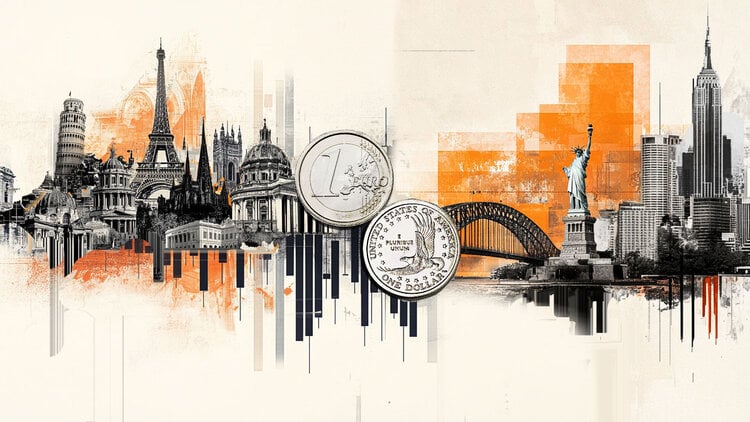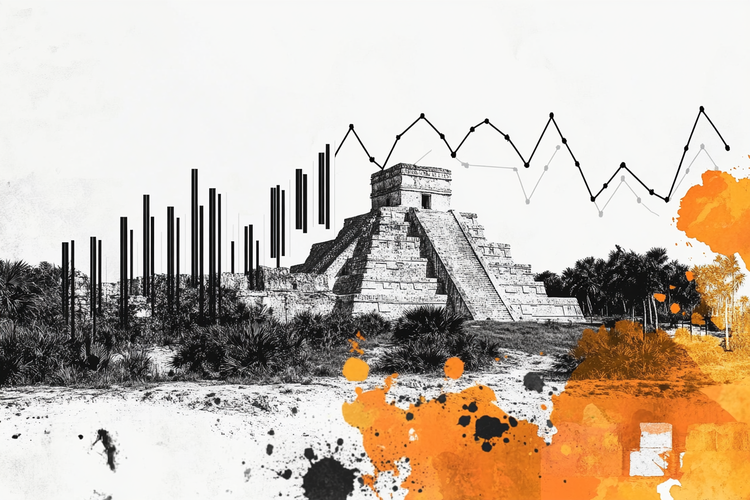Some states, for example the authorities of Singapore, accept certain types of cryptocurrencies as legal means of payment and are developing laws to regulate crypto exchanges and ICOs. And some are banning the use of cryptocurrencies due to concerns about the stability of the financial market and the actions of criminals. Let's look at the most interesting jurisdictions from the point of view of regulating digital assets.
Lawyers helped us understand the nuances of the rules and regulations of Bits.media
GMT Legal.
Thailand
The Kingdom of Thailand has the Digital Asset Decree (Emergency Decree on Digital Asset Businesses, BE 2561) 2018 – rules that regulate the circulation of digital assets.
According to the law, they include two types of assets: cryptocurrencies and digital tokens. Key Difference: Cryptocurrency is created for a specific purpose as a medium of exchangeand a digital token is generated for use as proof of rights.
There are strict requirements for the issuer, including large investments in the authorized capital, personnel requirements, code requirements, and so on.
The law distinguishes three categories among service providers:
-
digital asset exchange;
-
digital asset broker;
-
digital asset dealer.
All three types of activities require a license from the Ministry of Finance, which is issued on the recommendation of the Securities and Exchange Commission. Basic requirement: the company must be established in Thailand. However, a digital asset exchange should not be a digital dealer/broker, and vice versa. Exchanges, brokers and dealers are required to maintain clean capital.
The service provider will be considered a “financial institution” under anti-money laundering and anti-terrorist financing laws and, accordingly, must comply with a number of obligations, including identification and transaction reporting.
Taxes: Thailand has a number of incentives for cryptocurrency companies and users, including a value added tax (VAT) exemption on income until 2023 and a $1 billion tax break for companies issuing investment tokens. Other transactions are subject to a 15% capital gains rate.
|
Tax conditions |
General tax rules apply. Profit received from digital assets is subject to progressive personal income tax of up to 35%. All income received from trading digital assets is subject to a value added tax of 15%. This applies to:
If the transaction is conducted through licensed digital asset exchanges, the payer does not need to deduct tax. |
|
Legal status of cryptocurrency |
Legalized. |
|
Special sanctions |
General sanctions for violating money laundering laws. Site blocking, fines. |
Indonesia
Currently, the regulation of cryptocurrencies in the Republic of Indonesia has entered a transition period. The new law transfers supervisory powers from one authorized body to another with a transition period of two years.
The Indonesian Commodity Futures Trading Regulatory Agency (Bappebti) regulations are currently in effect:
-
Regulation No. 8/2021 on Guidelines for Conducting Crypto Asset Physical Market Trading on Commodity Exchanges as amended;
-
Regulation of the commodities trading supervisory agency No. 4 of 2023.
In Indonesia, cryptocurrencies can only be traded as a commodity and are not considered legal tender. It is expected that some types of cryptocurrencies will be subject to securities legislation after the law from the new regulator comes into force.
The law now defines cryptocurrencies as intangible goods in digital form that use cryptography, information technology and distributed ledgers to regulate the creation of new units, verify transactions and ensure the security of transactions without interference from other parties.
The following types of crypto businesses are regulated in Indonesia:
-
futures exchanges;
-
crypto futures clearing houses;
-
cryptocurrency storage managers;
-
cryptocurrency traders.
In case of carrying out activities other than the above, approval must first be obtained from the head of the agency.
Token issuance (ICO) is not yet regulated in Indonesia.
From January 2025, the responsibilities of the main cryptocurrency regulatory agency should be transferred to the Financial Services Authority (OKJ).
|
Tax conditions |
Value added tax (VAT) of 0.11% on every cryptocurrency transaction in Indonesia. 0.1% capital gains tax on crypto investments. |
|
Legal status |
Not prohibited. |
|
Special sanctions |
General sanctions for violation of civil regulations. |
Singapore
The Republic of Singapore is one of the first jurisdictions to introduce detailed cryptocurrency regulation. Several regulations are currently in force: the Payment Services Act (PSA), the Securities and Futures Act (SFA), and the Commodities Trading Act.
Cryptocurrency can be defined as “electronic money” or “digital payment token”
-
Electronic money – any electronically stored monetary value, denominated in or linked to any currency, paid to enable payment transactions.
-
Digital payment token – any digital representation of value that is expressed as a unit and is not denominated in or linked to any currency. Is or is intended to be a means of exchange, payment for goods or services, or the repayment of debt.
However, a cryptocurrency may represent a security, a derivative contract based on securities, or a unit in a collective investment scheme. If a person intends to offer it for sale, a prospectus will need to be prepared and filed with the Singapore Securities Commission.
General money laundering laws apply to cryptocurrencies in Singapore. The Corrupt Practices, Drugs and Other Serious Crimes Act 1992 (CDSA) imposes a duty to report seemingly questionable transactions to the Suspicious Transaction Reporting Unit of the Commercial Affairs Department of the Singapore Police Force.
There are seven types of payment services:
-
invoice issuing service;
-
electronic money issuance service;
-
cross-border money transfer services;
-
domestic money transfer services;
-
service for attracting traders;
-
communications security center service;
-
money exchange service.
All types of services require a license.
Taxation of cryptocurrency in Singapore depends on the type of activity. Profit received from cryptocurrency trading by a legal entity is subject to income tax. If cryptocurrencies are purchased for long-term investment purposes, the resulting capital gains will not be subject to tax as Singapore does not impose capital gains taxes.
|
Tax conditions |
Singapore has no capital gains tax or income tax on cryptocurrency for individual investors. For resident companies, taxes range from 0 to 22%.
|
|
Legal status |
Legalized |
|
Sanctions |
General sanctions for violating money laundering laws. Significant violations include failure to comply with the obligation to deposit assets and verify the safety of asset storage methods, as well as maintain records of each client's assets. Violations are subject to severe fines of up to $250,000. |
Vietnam
Although the Socialist Republic of Vietnam ranks third in Chainalysis's cryptocurrency adoption rankings, ahead of the United States, there is no regulation of cryptocurrencies. As, indeed, the ban. The regulatory framework is promised by the authorities in 2025.
Taiwan
There is no special law establishing a legal regime for cryptocurrencies in the Republic of China yet.
However, virtual currency is defined by law as “a digital representation of value created using cryptography and distributed ledger technology or other similar technology, which can be digitally stored, exchanged, disposed of, or used for payment or investment purposes.”
Cryptocurrencies do not refer to local or foreign currencies, securities, or other financial assets issued in accordance with the law. Virtual Asset Service Operators (VASPs) in Taiwan are referred to as “virtual asset platform or transaction management enterprises.” They are allowed the following activities:
- exchange of virtual and fiat currencies;
- transfer of virtual currencies;
- storage or management of virtual currencies.
- participation in the provision of services related to the offering of virtual currencies.
VASPs are required to identify and verify clients and monitor transactions. However, the licensing procedure for such companies has not yet been established.
The regulator is the Financial Supervisory Commission (FSC).
The issuance of digital coins is regulated if the token falls under the category of investment token (identical to the criteria of the Howey test, that is, the test for a financial pyramid). Only qualified investors can participate in the offering of a token as a security, and the tokens themselves have restrictions on functionality.
Mining activities are not regulated.
In 2023, FSC published the basic principles that guide its work, but full-fledged legislation is still in the process of being created.
|
Tax conditions |
General tax rules apply. As a general rule, transactions are subject to value added tax at a rate of 5%. Income from cryptocurrency trading is consolidated with other income. Income tax from sources in Tawain for legal entities is about 20%, for individuals – from 5% to 40%. If the foreign income of a tax resident individual is more than 1 million Taiwan dollars and the total income is more than 6 million, an additional tax of 20% is payable. Local companies receiving tax-exempt income also pay 12% on all company income minus NT$500,000. |
|
Legal status of cryptocurrency |
Legalized |
|
Special sanctions |
General sanctions for violating the laws on money laundering, for example, a fine of up to 5 million Taiwan dollars for evading government inspections, a fine of up to 10 million for the lack of internal control systems, transaction accounting, and others. |
|
Feature |
VASPs are full-fledged subjects of money laundering legislation, but a licensing procedure has not yet been introduced. |
Cryptocurrency Central Asia: features of regulation in the CIS
Cryptocurrency Caucasus and Europe: features of regulation in the CIS
Cryptocurrency Balkans: nuances of regulation outside the European Union
Cryptocurrency emirates: nuances of regulation in Dubai and the UAE
*the main attraction is the flag of the Association of Southeast Asian Nations (ASEAN).
Source: Bits
I am an experienced journalist, writer, and editor with a passion for finance and business news. I have been working in the journalism field for over 6 years, covering a variety of topics from finance to technology. As an author at World Stock Market, I specialize in finance business-related topics.







